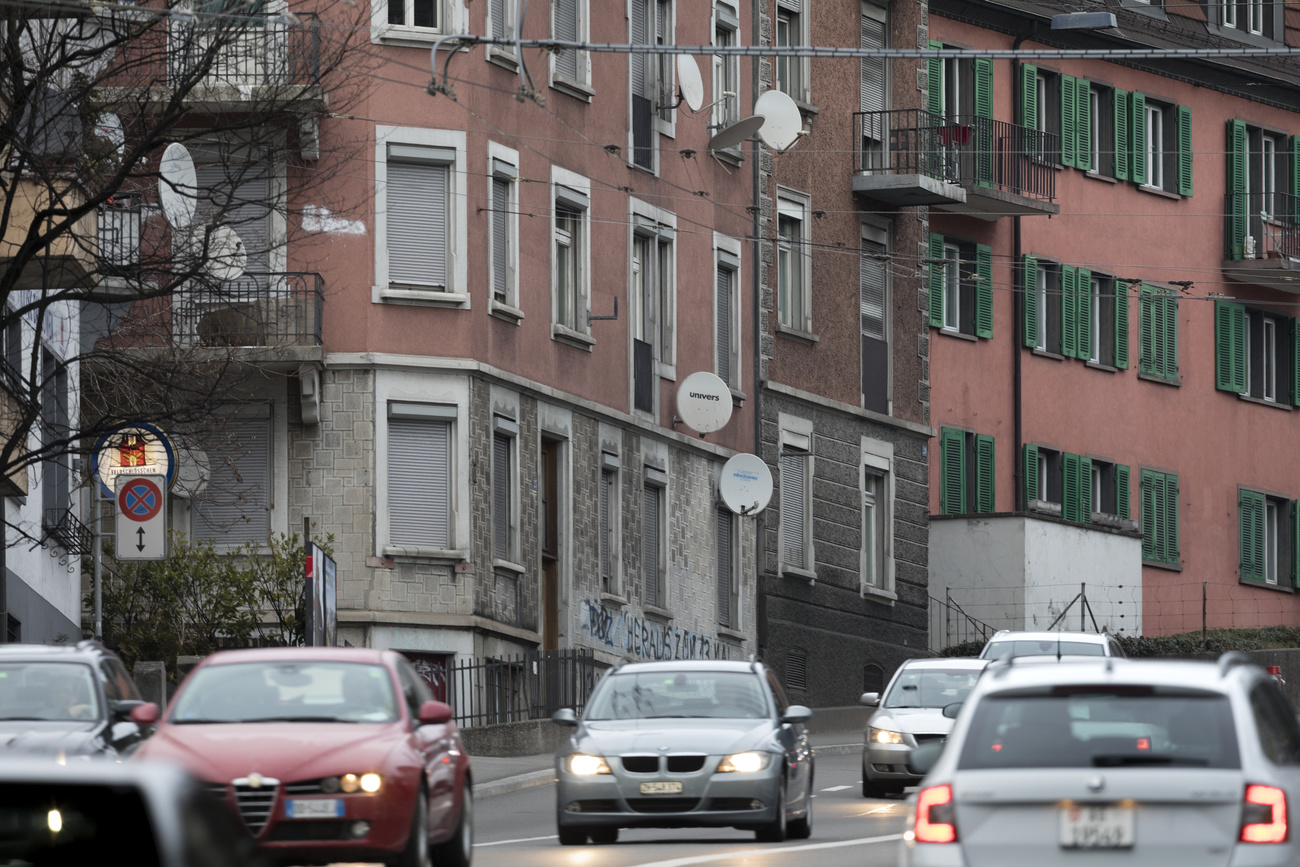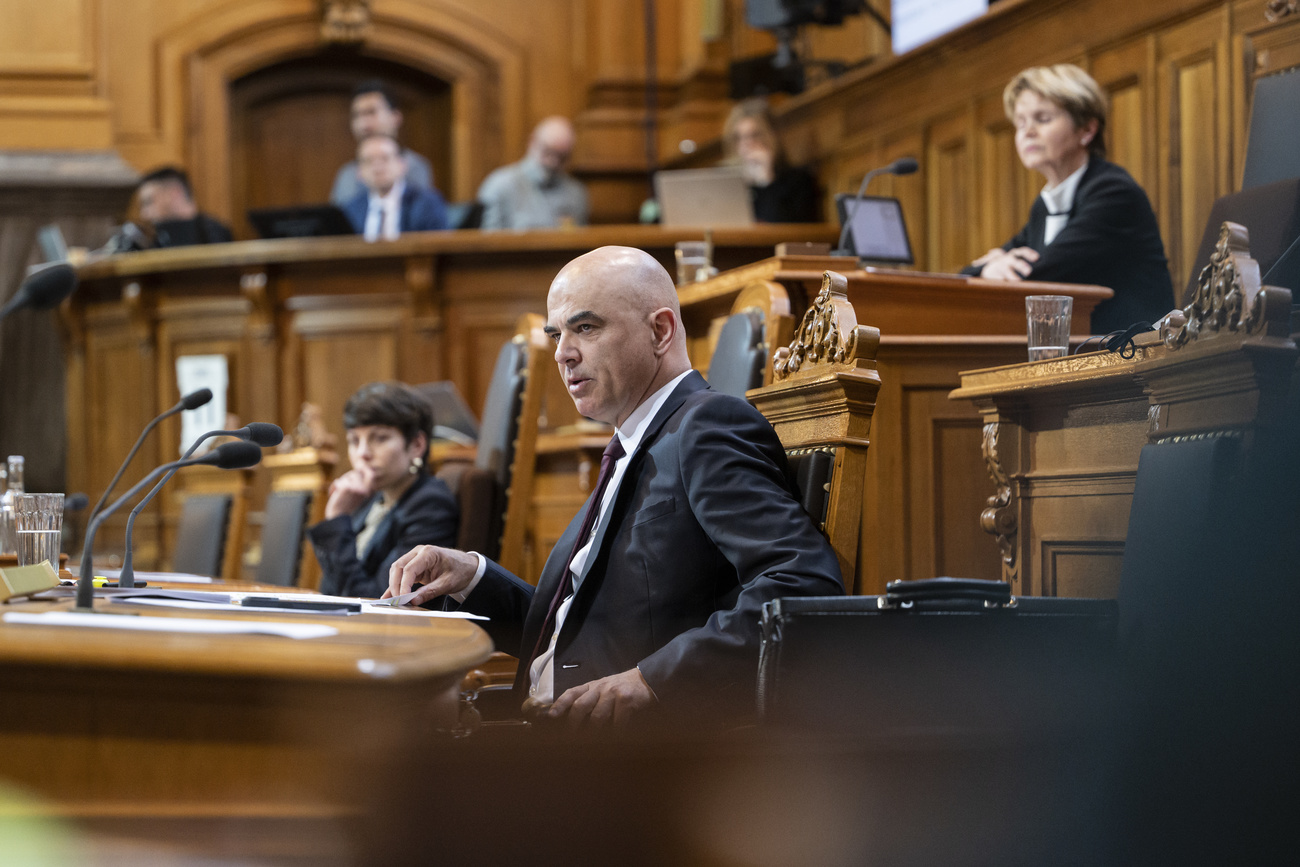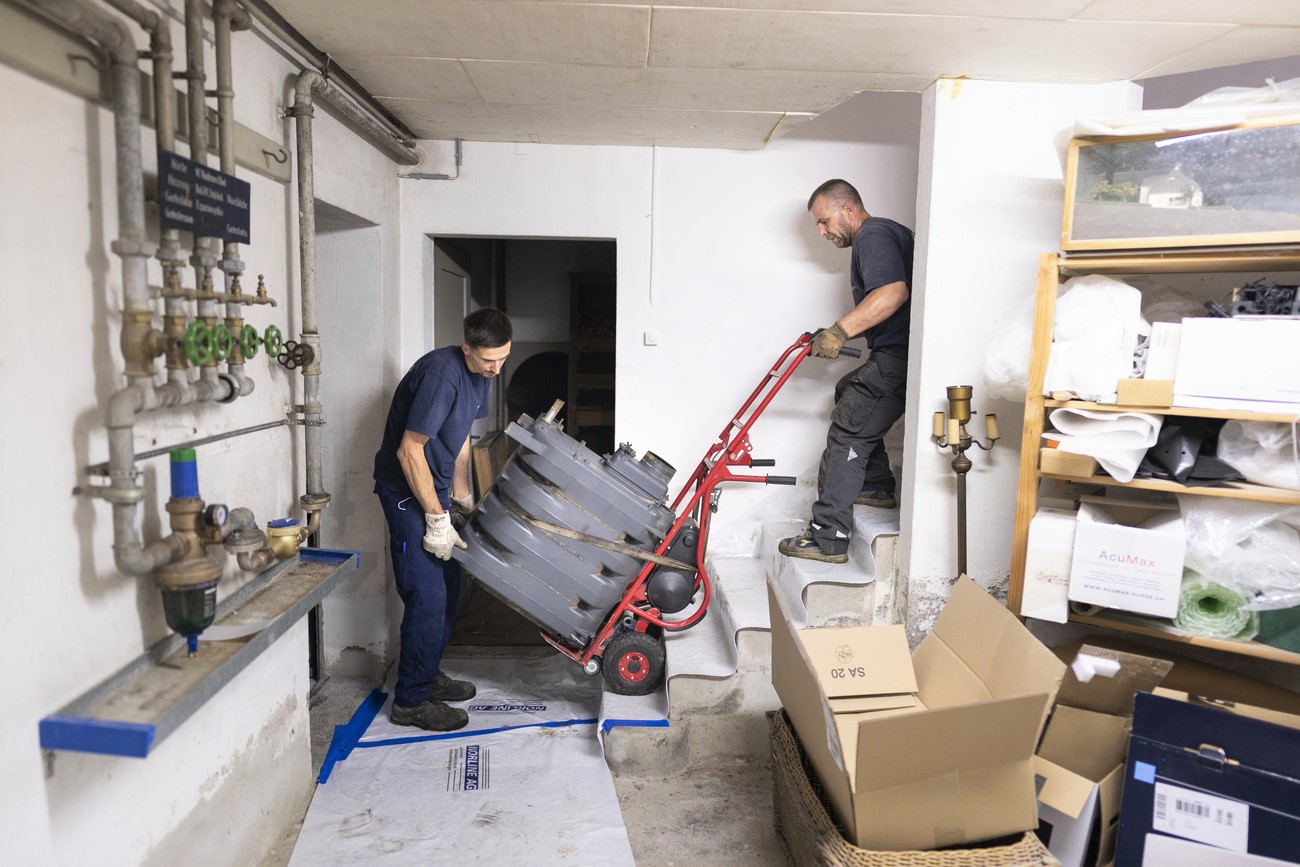

Switzerland Today
Dear Swiss Abroad,
“When nothing’s at stake, it’s easy to be brave,” reckoned one Swiss paper this morning, reacting to the symbolic protest of several parliamentarians yesterday to vote against the rescue of Credit Suisse. Here are more news and stories from Switzerland on Thursday.

In the news: Commitment to Ukraine, harmful road traffic noise, and efforts to move freight from road to rail.
- Swiss Foreign Minister Ignazio Cassis has emphasised Switzerland’s commitment to long-term support for Ukraine. The government said it intends to provide at least another CHF1.5 billion ($1.7 billion) by 2028.
- Teenagers exposed to road traffic noise at home can suffer memory and concentration deficits, according to a Basel study. However, the effects are considered to be slight.
- Switzerland has pledged up to CHF66.3 million to help finance a rail freight terminal near Milan, Italy. The funds are being spent abroad as part of Switzerland’s drive to steer more freight away from roads and onto the rail network as it passes through the Alps.

Yesterday Switzerland’s parliament delivered a stinging rebuke to the forced sale of Credit Suisse, with one chamber, the House of Representatives, rejecting plans to prop up the deal with CHF109 billion ($122 billion) of state funds. What did the papers make of this? Not much.
The No votes were mainly delivered by the left and right wings of the political spectrum, but ultimately the votes are purely symbolic as a parliamentary committee has already rubber-stamped the promised billions. On March 19 Credit Suisse, Switzerland’s second-largest bank, imploded, requiring a government-ordered merger with rival UBS.
Here is a selection of unimpressed comments from today’s newspapers:
Blick: “Instead of showing themselves ready for compromises, the left and the [right-wing] Swiss People’s Party stubbornly went on the hunt for voters with pithy speeches. When nothing’s at stake, it’s easy to be brave. However, you don’t get anywhere with bluster. […] Politics requires a willingness to compromise – even in an election year.”
Tages-Anzeiger: “[…] This is not the way to move forward politically. What’s more, parliament is sending out signals of mistrust – a few weeks after the federal government stopped a bank run with a three-digit billion sum. With their resistance, the [left-wing] Social Democratic Party, the Greens and the Swiss People’s Party are undermining the government’s strategy of guaranteeing stability at all costs.”
Neue Zürcher Zeitung: “The rejection of the Credit Suisse loan in the House of Representatives is largely political theatre. Behind it, however, lies a serious question: Does Switzerland want and can it afford a large domestic bank and an international financial centre? Politicians should be careful not to throw the baby out with the bathwater.”
Aargauer Zeitung: “Six months before the national elections the parties’ profiling urges were stronger than their willingness to work towards solving a problem. So the parliamentarians indulged in indignation about incompetent Credit Suisse managers and about the possibly all-too-tame supervision of the financial market. Yet the central question is: How can we prevent a failing big bank from dragging the entire Swiss economy into the abyss in the future? The House of Representatives has achieved absolutely nothing here.”
Südostschweiz: “The decision of the House of Representatives is not worth the paper it’s printed on. The government has granted the aid money via emergency law. The government may not have made the best decision, but it did make a decision in the small window of time available to it. It deserves praise for this.”
Le Temps: “The rejection in the House of Representatives shows an incipient realisation that stricter supervision of a mega-bank is crucial for Switzerland’s prosperity. Now concrete measures still need to be decided. In view of the powerful banking lobby, this will require a lot of political courage. Which one can doubt given the dithering in this session.”
La Liberté: “With their refusal to approve the loans for the takeover of Credit Suisse by UBS, the majority of the House of Representatives have elevated themselves to the rank of the irresponsible caste of managers of the defunct bank. […] What a sad spectacle!”

Today, we explain everything you need to know about the vote on a counterproposal to the so-called Glacier Initiative, which aims to cut greenhouse gas emissions to net zero by 2050.
The Swiss go to the polls four times a year to vote on a range of issues at federal, cantonal and municipal level. At the next votes, on June 18, the public will have their say on three federal issues: a new climate law, new corporate tax rules, and the Covid law.
In our explainer we ask and answer all the important questions, including: What’s it all about? How is the new law different from the Glacier Initiative? Why has the public been called to the polls? Who is for and against the climate law?
More

In compliance with the JTI standards
More: SWI swissinfo.ch certified by the Journalism Trust Initiative




























